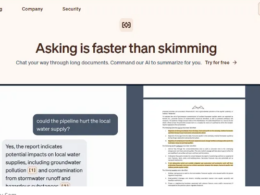Consumer confidence in housing finally goes up because home prices are going down. Even while mortgage rates are double what they were a year ago, decreasing home prices since June have helped ease consumer anxiety over the once red-hot and fabulous housing market.
Fannie Mae’s monthly housing index showed that consumer optimism rose from November to December. Even while it has recovered somewhat from its record low in October and November, the index is still lower than it was a year ago.
Although just 21% of respondents believe it to be an excellent time to buy a property, this is an increase from October’s 16%. Fewer people are currently pessimistic about the future.
Read more: Sales of Tesla cars in China are falling as competition gets more challenging.
However, consumer confidence fell as sales increased. The percentage of people who think right now is an excellent time to sell has decreased from 54% to 51%, while the percentage of people who think it’s the wrong time to market has grown.
More buyers are now pessimistic about the housing market’s performance over the next year, and a similar proportion anticipates a decline in mortgage rates over the same time frame.
According to CoreLogic, November’s prices were 2.5% lower than the peak in spring 2022. Still, they were almost 8% higher year on year, which is now just half as high as in June.
The popular 30-year fixed mortgage rate peaked at 7.37% in October before dropping to the mid-6% area in the following months. According to Mortgage News Daily, it hit a new low of 6.2% last Friday.
According to Doug Duncan, senior vice president and chief economist at Fannie Mae, “we expect affordability to remain the top challenge for potential homebuyers as we enter 2023,” as even slight declines in rates and home prices (from the buyer’s perspective) may not produce sufficient purchasing power. Conversely, “current homeowners may continue to wait to list their properties because many have already locked in reduced mortgage rates, creating minimal motivation to sell and buy again until rates are more favorable.”
Duncan predicts this stress will reduce home sales even further in the coming months.
The percentage of customers worried about being laid off within the next year fell from 21% to 17%, adding to the rising optimism over real estate. However, fewer people reported that their household income had increased significantly during the past year.
Some real estate professionals claim that the market has “frozen” over the past few weeks due to the traditionally slow winter season. Signed contracts for existing homes, which represent pending home sales, declined more than expected in November, indicating a decrease in closed sales in January.
Sellers that are willing to brave the current housing market are sweetening the deal in several ways: According to Redfin, a real estate agency, the percentage of sellers who listed their homes for sale online in the fourth quarter was the highest it has been in recent years, at around 42%. That’s greater than the previous high of 40.8%, recorded in the three months ending in July 2020, at the outset of the Covid pandemic. The last quarter and the fourth quarter of 2021 had increases of a little over 30%.








